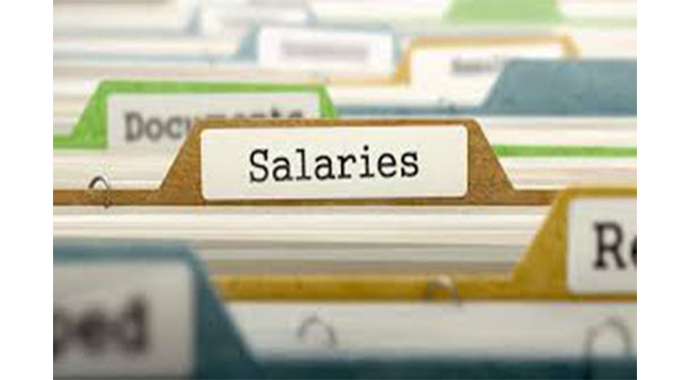COMMENT: Civil servants urged to take wage offer

THE Government is still locked in negotiations with its workers over a salary increment, but, pending the finalisation of the dialogue, has committed to increasing civil servants’ packages this month.
On Thursday at a National Joint Negotiating Council (NJNC) meeting, the Government offered its workers a 25 percent pay rise effective this month followed by another 50 percent rise in June, but civil servants’ representatives rejected the proposal. In rejecting the staggered 75 percent offer, unions want the larger proportion of the phased increase to be paid out first which the Government has said it is unable to do given subdued revenue inflows.
The negotiations come weeks after the civil servants indicated that they would demand higher salaries with teachers’ unions declaring they wanted an average salary equivalent to US$500 monthly, which is about $42 000 monthly in local currency. That is almost double the salary they are getting now.
Indeed, their grievances are legitimate. While the economy is steadily improving, that improvement will naturally be slow to reflect in the level of salaries and standards of well-being of the population.
The Government is spending less, exports are increasing in value and volume, inflation is decreasing, industry is spending more and more on new technology, capacity utilisation is increasing, access to foreign currency for industry is improving and the parallel market for foreign currency has been tamed. These are important improvements that serve as the foundation for the economy to take off.
International finance organisations such as the World Bank and the International Monetary Fund have confirmed that Zimbabwe’s economy will record positive numbers. The Government projects a 7,4 percent economic growth this year.
For us as a country, the Covid-19 pandemic hit at a wrong time as the economy was beginning to pick up more earnestly starting early last year. The Government has been forced to spend more money in responding to the pandemic and starting this year, is spending more importing vaccines. At the same time, lockdowns have affected the running of business, which has affected revenue collection into Government coffers.
Despite the foregoing challenges, the Government will increase its workers’ salaries by 25 percent this month and an additional 50 percent in the next three months.
Public Service Commission (PSC) chairperson Ambassador Jonathan Wutawunashe said in a statement at the weekend:
“Government is pleased to advise that the meeting between workers’ representatives and the Government team in the National Joint Negotiating Council (NJNC) continued in earnest and in a very honest way. While continuing with the crucial negotiations, Government wishes to implement payment of increments from what is immediately available to support its workforce, without prejudice to the negotiating process, which must continue.
It needs to be borne in mind in that regard that some civil servants do not belong to any union, and might not wish to forgo the immediate improvement of their emoluments pending the conclusion of negotiations in the NJNC.”
As we have mentioned earlier, the challenges facing the economy are immense — the illegal Western sanctions and the Covid-19 pandemic.
However, things have been looking up a bit as indicated by improving industry performance, reduction in inflation, easier access to foreign currency, a huge agricultural harvest that has been forecast and so on.
It is gratifying that despite the long-standing challenges and the very early signs of economic recovery, the Government is able to increase workers’ salaries by 75 percent within three months and is paying the first fraction before the finalisation of negotiations. We see that as a demonstration of good faith on the part of the employer, a gesture we hope civil servants will recognise by reporting to work as usual.
It is a sad irony that as this happens, children learning at private schools are learning full time, with owners of their schools actually seeking a three-week exeat holiday. It is sad that children at Government schools, whose parents and guardians are often resource-poor, continue to lose while those at more expensive schools continue to learn and actually want to rest.
We acknowledge teachers’ grievances but plead with them to also acknowledge the plight of their pupils and give the employer room to work on a better package for them.











Comments